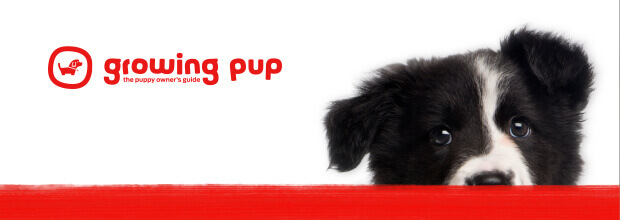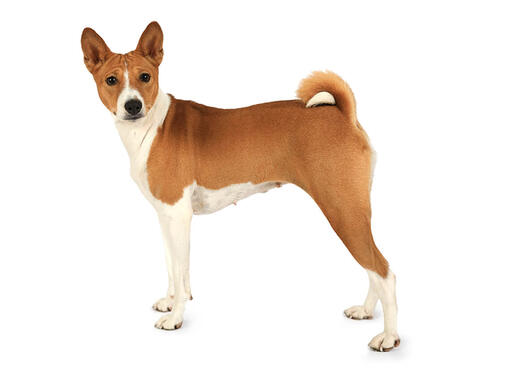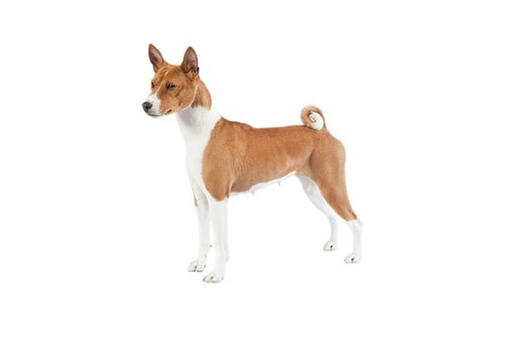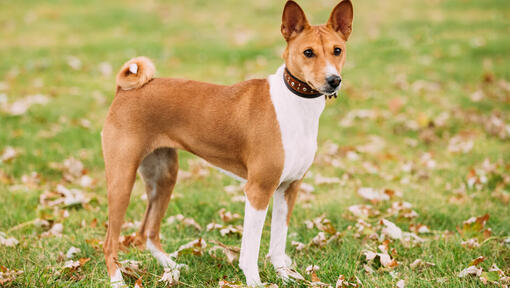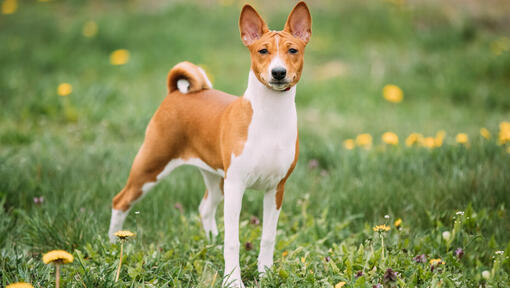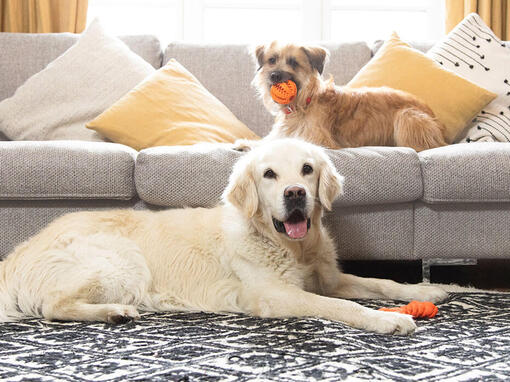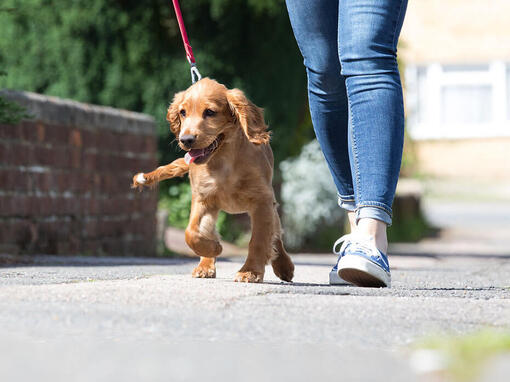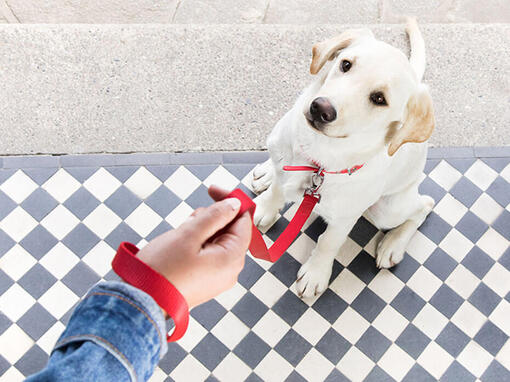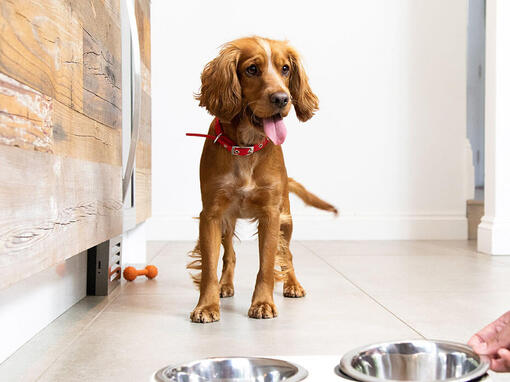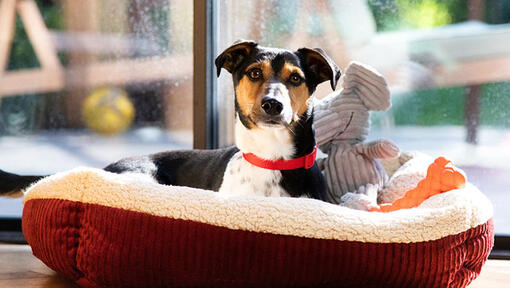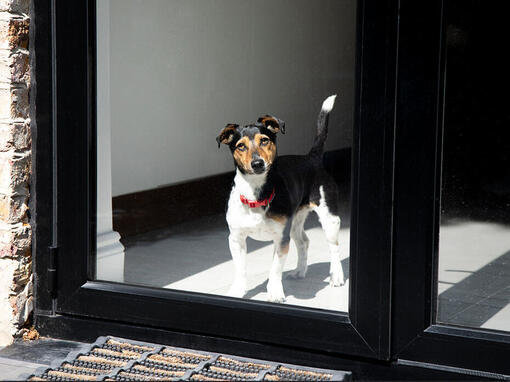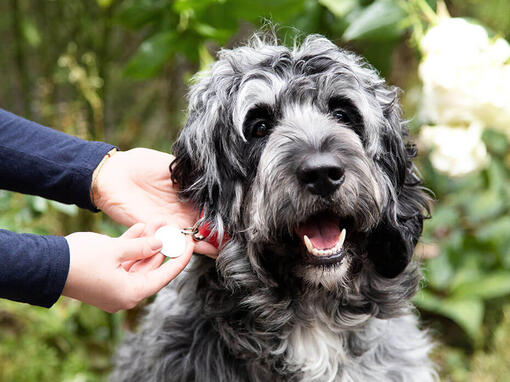An elegant, lightly built hunting dog from Africa, the Basenji is known as the “Barkless Dog” due to his making a noise that sounds like a yodel when excited. His distinctive features are a wrinkled forehead and tightly curled tail. Though aloof around strangers, the Basenji is an affectionate, alert and intelligent breed full of activity and play. The Basenji’s short, odor-free coat requires minimal grooming.
DID YOU KNOW? One of the oldest dog breeds, it is believed that Basenjis were given as gifts to the Pharaohs of ancient Egypt.
ALSO KNOWN AS: African Bush Dog, African Barkless Dog, Ango Angari, Congo Dog, Zandle Dog


